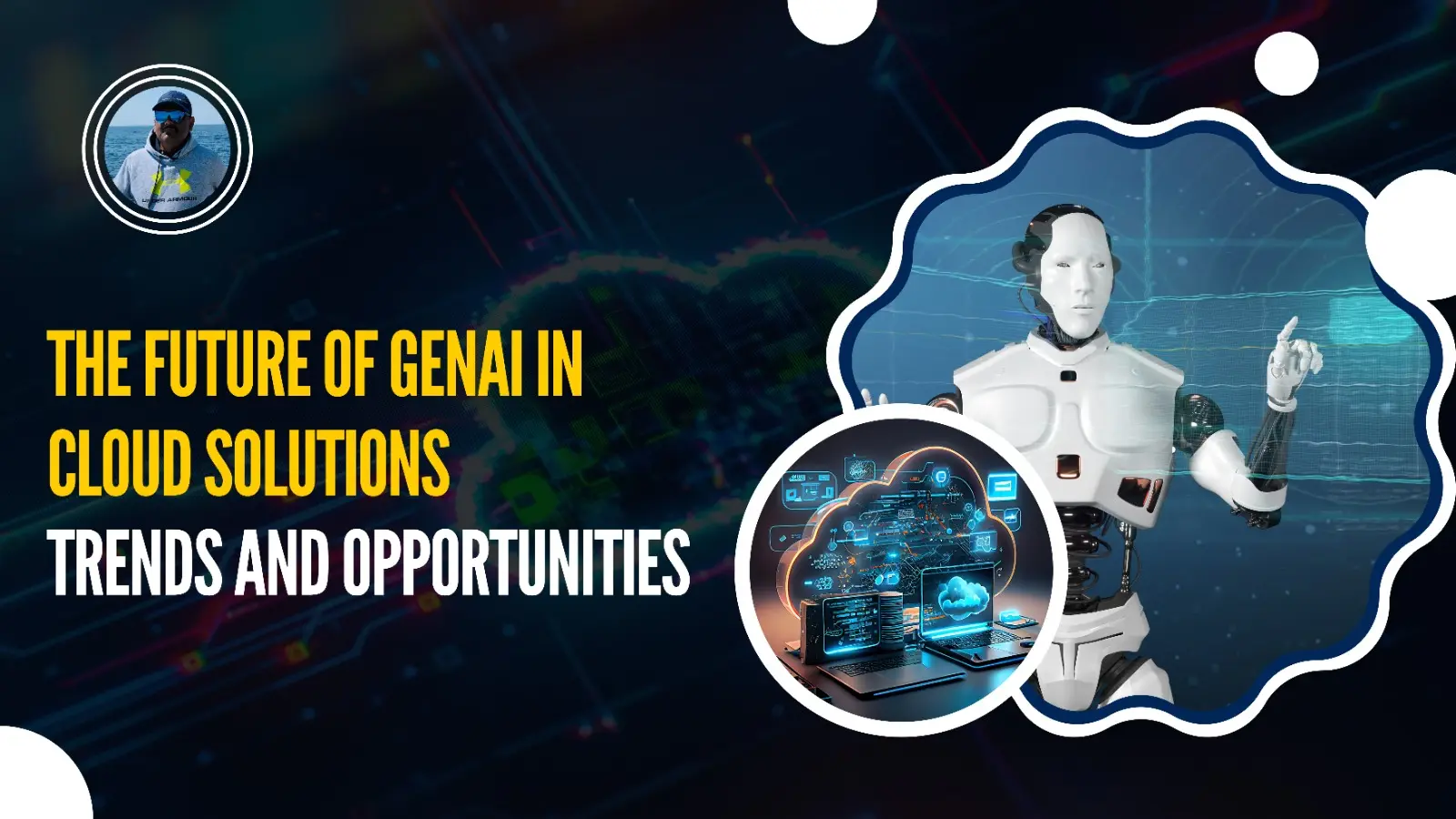In the age of digital transformation, cloud computing has become a key technology that drives innovation in a variety of sectors. However, there are a lot of difficulties because of the exponential growth of data and the complexity of managing cloud operations.
With its innovative ways to optimize operations and streamline cloud computing, generative artificial intelligence (AI) has become a game-changing tool. In this blog, we will explore the trends and opportunities that define the future of GenAI in cloud solutions.
The Convergence of Cloud Computing and GenAI
Cloud computing enables firms to be flexible and quick by offering scalable, on-demand resources. However, generative AI offers new machine learning capabilities that may automate difficult operations and transform massive amounts of data into useful insights. These technologies’ convergence represents a paradigm shift that makes cloud systems smarter, more effective, and highly adaptable.
Automated Resource Management
Cloud computing systems may now manage resources automatically thanks to generative AI. By examining consumption trends and predicting demand, AI-driven systems are able to distribute resources dynamically which leads to peak performance and economical efficiency.
Improved Security
In cloud computing, security is crucial since data breaches can pose serious dangers to a business. By creating hostile examples to assess how strong cybersecurity protections are, generative AI helps strengthen security protocols.
Furthermore, real-time monitoring of suspicious activity and possible attacks is possible with AI-driven anomaly detection systems, reducing risks and improving overall security posture.
Customized User Interfaces
Cloud-based apps and services can now offer customized user experiences through generative AI. By examining user behavior and preferences, AI algorithms may produce customized interfaces, recommendations, and content that increase user pleasure and engagement. This individualized strategy increases client loyalty and propels corporate expansion, particularly in highly competitive marketplaces.
Optimizing Workload
In cloud systems, workload optimization is crucial for reducing latency and optimizing resource usage. By analyzing workload patterns and optimizing task scheduling, generative AI systems can boost productivity and reduce operating expenses. Additionally, recommendation systems driven by AI might offer useful insights to improve efficiency and optimize workflows.
Opportunities for Business
The integration of GenAI into cloud solutions offer numerous opportunities for businesses looking to innovate and improve their operations.
Improved Decision-Making
Organisations can make smarter decisions across all departments, whether it is about allocating resources, cost management, or strategic planning, thanks to AI-powered insights.
Greater Flexibility
Real time data allows businesses to adjust their resources quickly that further helps them to match the changing market conditions or customer demands.
Better Collaboration
As more companies use hybrid and multi-cloud setups, GenAI helps in connecting platforms and streamline collaboration by offering clear, unified insights.
Faster Innovation
GenAI’s ability to learn and adapt continuously helps organisations keep up with market trends, helping them stay ahead of their competitors by adopting new technologies.
Challenges to Consider
Here are a few challenges to keep in mind when it comes to the future of GenAI in cloud solutions:
Data Security
These days, security and privacy are top issues for all CIOs. The key to security in cloud and AI environments is access: Who has access? How can they get in? The utilization of data is what privacy is all about.
As demonstrated by the recent CrowdStrike incident, cloud providers have complete control over security and privacy. Therefore, leaders need to be aware that third-party risk might have significant repercussions.
Data Consolidation and Collection
High-quality data is essential for generative AI models to function properly. Large volumes of appropriate data must be gathered by businesses in order to train their models. This can provide a big obstacle, particularly for businesses without well-established data collection procedures.
Lack of Use Case Understanding
Not every company is fully aware of how generative AI might help with their particular operations. To fully utilize the potential of GenAI, it is essential to identify the most compelling use cases and customize GenAI solutions to meet them.
Without a clear goal, companies run the danger of deploying GenAI solutions with little to no benefit.
Regulatory Compliance
As AI keeps advancing, the rules around how it’s used are also changing. Organizations must stay informed about compliance requirements related to data protection and ethical AI practices.
Summing up
Cloud computing and GenAI together are transforming the way startups and tech providers handle their infrastructure. Businesses can ensure their cloud systems are efficient, secure, and adaptable by using tools like advanced security, smart traffic distribution, automated cost-saving methods, and predictive scaling. As AI continues to grow, adopting these technologies will be key to staying competitive and driving innovation in today’s digital world.
Written by Mr. Ajay Kumar –
Click on this link for more such content










